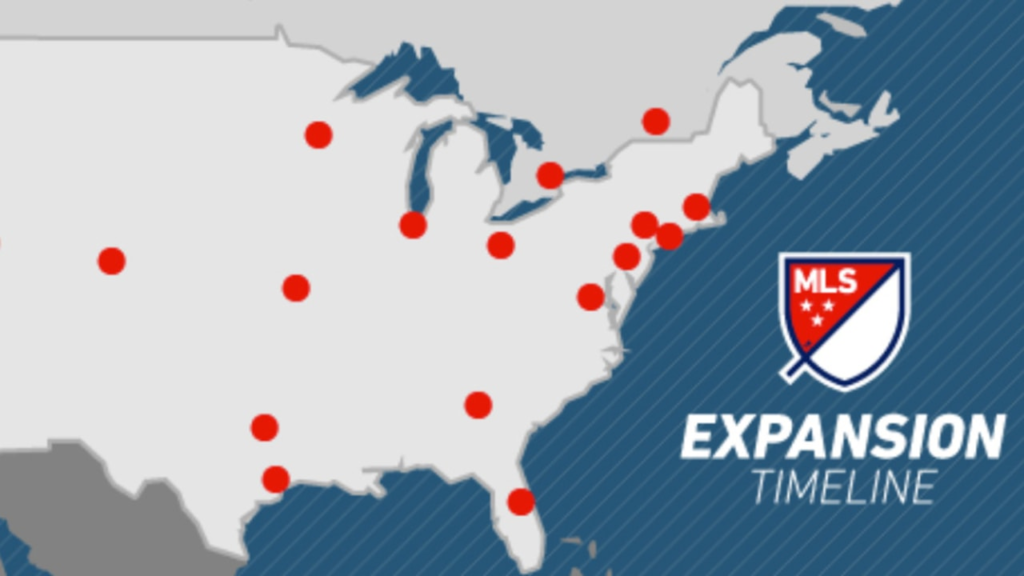David Beckham, Thierry Henry, Wayne Rooney, Zlatan Ibrahimovic, Steven Gerrard the names roll off the tongue. All these players were all superstars of the Premier League before moving to the Major Soccer League in the United States of America. However, a question the MLS and its supporters are currently grappling with, is why does this league not have a promotion and relegation of its clubs, as with all of the major soccer leagues in the world.
Why is there no promotion or relegation in MLS? Even though the MLS is growing at a fast pace, the MLS has a financial model that treated each of the league’s clubs as if they were all part of the same company. Since then, the league has grown at a gradual and steady pace over the last two decades, growing from a ten-team operation to a 24-team league.
There is no movement on the side of the league to promote the introduction of promotion and relegation, which is a system that would need to be legislated and enacted by the U.S. Soccer before it could be implemented. Carrying on reading the article to find out were the MLS will go with relegation going forward.
Prohibitive Cost
One of the main reasons for the MLS dragging its heels against the promotion-relegation issue is cost. New clubs entering the league would have significant expenditures on an annual basis, as the television rights for the MLS and consequent revenue, are a lot less than the Premier League. Given the amount of investment required, United States Soccer has been hesitant to even entertain the notion of attempting to adopt promotion and relegation at this time, even though the American second division is expanding at a rapid rate.

Despite the sport continuing to flourish at all levels, there has been little action from the United States Soccer Federation (USSF) on the issue. In response to the stalemate, opponents of the existing structure in the United States have filed lawsuits and filed court documents to try to change a system that they feel is now dominated by the MLS rather than by the USSF. Officials from Major League Soccer have long maintained that promotion and relegation would be sustainable in the United States.
Court Battles
This difference of opinion between individuals who want promotion-relegation in the league and those against it have already taken their viewpoints to court. In 2020, a long-running lawsuit trying to force promotion and relegation to be upheld in the MLS had failed. Lower-tier clubs Miami and Kingston Stockade filed a challenge in 2017 with the Court of Arbitration for Sport (CAS) against FIFA, North American soccer body Concacaf and the U.S. Soccer Federation.

USL) as the new second division, also wanting to implement a promotion-relegation system for the league. This has also failed.
The Battle Continues
Even though the MLS is opposed to this system and the United States Soccer Federation has shown no interest in considering its implementation, proponents of promotion and relegation have continued to press FIFA to compel the United States Soccer Federation to implement it.
Even television rights to broadcast matches have come under scrutiny. In 2017 a competitor company withdrew from bidding for the rights to broadcast matches after learning that Major League Soccer would not include a promotion and relegation system. In response to the withdrawal, league officials said that they were contractually barred from participating in talks with prospective new distributors about broadcasting rights for the league’s games and matches.

Following a grassroots campaign to persuade FIFA to compel American soccer to adopt promotion and relegation, representatives from more than 150 amateur soccer clubs in the United States submitted a letter to FIFA, which was signed by representatives from all 50 states. It petitioned FIFA to enforce the rules regulating promotion and relegation in soccer for the entire football structure in the USA.
A segment of American soccer supports this highly contentious issue, but it will ultimately be up to the world body FIFA to decide whether or not it will enforce the United States to implement the system, even if it means risking legal challenges from those who have invested hundreds of millions of dollars into the current system.
MLS – is it ready for a promotion-relegation system
According to the current situation, the disparity between Major League Soccer and lower divisions such as the United Soccer League (USL) is extreme. This is due in part to the fact that many of the more successful lower-division markets in the country have either entered teams successfully into, or are about to enter teams into the MLS.
The ongoing expansion of Major League Soccer – which has been reported will reach 28 clubs into the future may potentially result in a natural and organic promotion and relegation if the league grows to the point where it is split into two separate leagues.

When it comes to lower-division teams investing more to overcome the present gap, it will need substantial increases in investment to make the system work, but supporters of the system believe that putting it in place would serve as a strong incentive to do so. There is also the additional motivation that promotion and relegation will allow clubs’ already in the top tier to operate more efficiently.
Grassroots Talent
A promotion-relegation system will see less complacency from clubs currently in the MLS. However, the biggest advantage could be at the grassroots level. Young, aspiring football players will now be able to see a way forward from the clubs that they play for.
They will know that the dream to play in the MLS will now only be for the elite Premier League players in the twilight of their careers, but will be available for all players in the USA if they possess the talent and the dedication.
